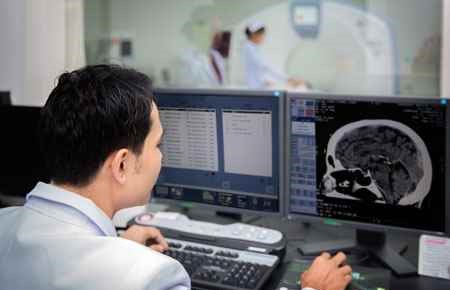
Electroneurodiagnostic/Electroencephalographic Technology/Technologist Major
This major is program that prepares individuals, under the supervision of a physician, to study and record electrical activity in the brain and nervous system for purposes of patient monitoring and supporting diagnoses.
Includes instruction in patient communication and care; taking and abstracting patient histories; application of recording electrodes; EEG, EP, and PSG equipment operation and procedural techniques; and data recording and documentation.
What can you do with a major/degree in Electroneurodiagnostic/Electroencephalographic Technologist/Technician Major?
As an Electroneurodiagnostics Technician or Technologist, it is your job to conduct electroneurodiagnostic (END) tests such as electroencephalograms, evoked potentials, polysomnograms, or electronystagmograms. May perform nerve conduction studies.
Job opportunities for electroneurodiagnostics technicians and technologists are extremely likely in the future as this career subsector is expected to see an eight percent (8%) growth 2019-2029.
A certificate is typically the minimum educational requirement to enter this career area. Some states require electroneurodiagnostic technicians and technologists to graduate from an accredited program and pass an exam. Some states require an occupational license. An associate degree is preferred.
Trade Associations and Professional Organizations in Electroneurodiagnostic/Electroencephalographic Technologist/Technician Major
Professional associations are groups of professionals dedicated to topics in specific fields. Professional associations provide a wealth of online resources, some of which are geared specifically towards students. These organizations typically also host conferences and events, providing great opportunities for learning and networking across your field of interest.
- American Board of Registration of Electroencephalographic
- American Association of Electrodiagnostic Technologists
- American Association of Neuromuscular and Electrodiagnostic Medicine
- Central Society of Electroneurodiagnostic Technologists
Publications/Magazines in Electroneurodiagnostic/Electroencephalographic Technologist/Technician Major